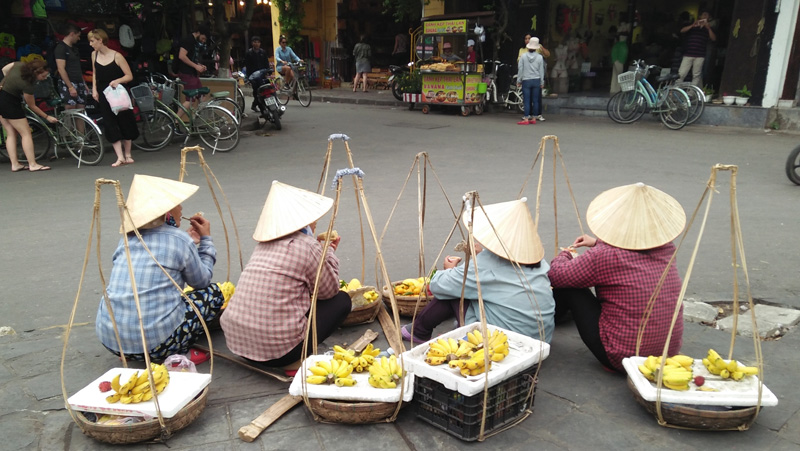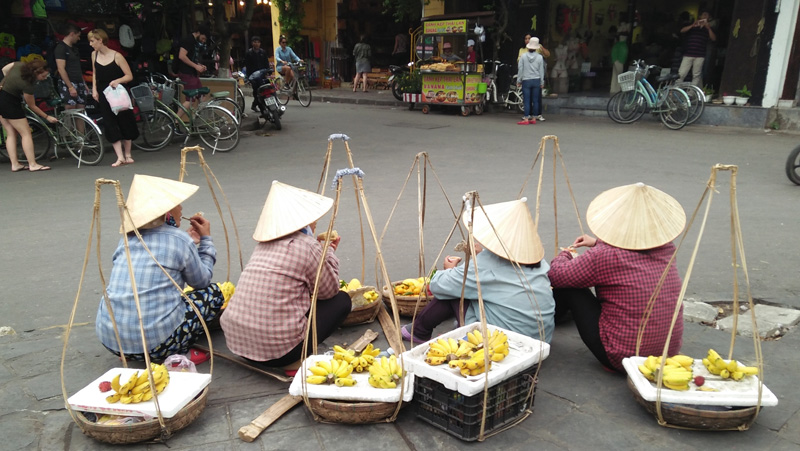



The government’s target of keeping inflation below 4% is within reach.
Standard Chartered Bank released its new forecast for Vietnam’s inflation rate yesterday, which is expected to come in at an average of only 3.7% for the year.
A few days ago, the International Monetary Fund also forecast that Vietnam’s inflation rate would be below 4% this year, while Spain-based FocusEconomics Consensus – which provide economic data for organisations and institutes in hundreds of nations worldwide yesterday also forecast that Vietnam’s 2018 inflation will average 3.9% in 2018.
The government had already set a target of controlling inflation at below 4% this year.
According to experts, these forecasted rates would be lower if there were no great pressures on inflation from now until the end of the year, including rises in the world’s oil price, Vietnam’s environmental protection taxes, state-owned establishments’ salaries, and in educational fees.
On July 18, the oil price on the London market was US$67.81 per barrel for WITI oil, and US$72.34 per barrel for Brent oil. These are the two main types of oil traded globally. Since January, the products’ prices have climbed by more than 20%.
The rise in global oil prices is attributed to the US’ withdrawal from the Iran nuclear treaty and its call for allies to not buy oil from Iran, leading to Iran’s oil exports falling from 2 million barrels per day to just one million per day. Moreover, OPEC has decided to increase its oil exports by just 30% of its initial export plan.
According to the General Statistics Office’s (GSO) Pricing Statistics Department, the climb in global oil prices will lead to higher fuel prices in Vietnam, pushing inflation up.
Adding further pressure, as of July 1, 2018, the salaries for state-owned establishments have increased by an additional VND90,000 (US$4). About 11 million people working in state-owned organisations, enterprises, and agencies, will benefit from this salary increase.
Meanwhile, under the government’s Decree 86/ND-CP/2015 on collecting and managing fees in educational establishments, there will be a rise in school fees from early September when Vietnamese pupils will begin their new school years.
Notably, the environmental protection tax applied to petrol usage in Vietnam will soon be lifted from the existing VND3,000 (US$0.13) to VND4,000 (US$0.18) per litre.
"This will push the inflation rate up by another 0.27-0.29%,” said Do Thi Ngoc, head of the Pricing Statistics Department. She added that prices of foodstuffs, especially husbandry products, are also expected to climb from now until the year’s end due to droughts and flooding which have been seriously affecting some regions in Vietnam.
"All of these factors have prompted us to create inflation scenarios for each month,” Ngoc said.
According to the GSO, consumer prices rose by 0.61% over the previous month in June, which marked a slightly bigger increase than the 0.55% month-on-month rise in May. A breakdown of the data shows that 10 out of the 11 sub-components saw higher prices, while the remaining category recorded lower prices. Prices for food and foodstuffs rose the most, while prices for postal services and telecommunications declined.
Inflation shot up to a 15-month high of 4.7% in June, from 3.9% in May. This is the first time in 14 months that inflation has surpassed the Central Bank’s target of 4.0%.